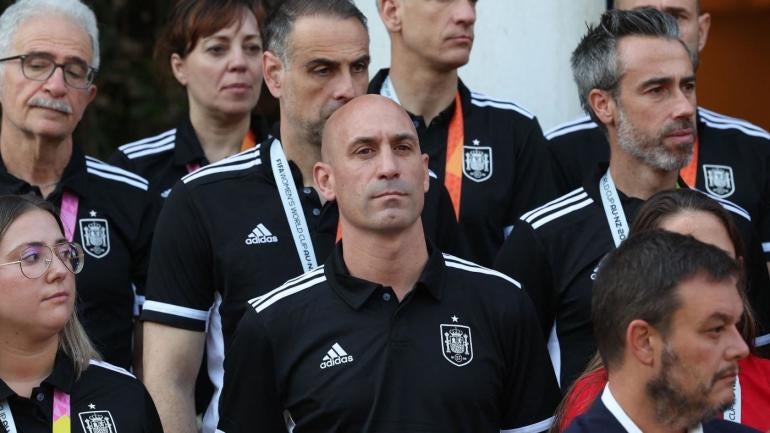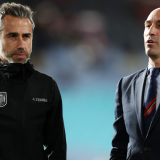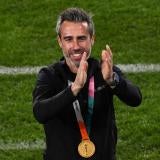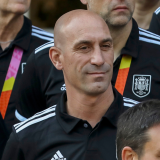
Luis Rubiales resigned from his post as the president of the Royal Spanish Football Federation, three weeks after he forcibly kissed Jennifer Hermoso during the trophy ceremony to celebrate Spain's first-ever Women's World Cup title. The ex-president also stepped down from his role as a vice president of UEFA.
The news was initially revealed by British media personality Piers Morgan, who published a clip from what appears to be an extended interview with Rubiales in which the soccer executive said he would step down.
"About my resignation, yes, I am going to," he said.
He said he "cannot continue my work" under the circumstances, including the final preparations on Spain's bid to co-host the 2030 World Cup with Portugal, Morocco and Ukraine. He said he consulted his father, his young daughters and some friends before making the decision.
Don't miss CBS Sports Golazo Network's Morning Footy, now in podcast form! Our crew brings you all the news, views, highlights and laughs you need to follow the Beautiful Game in every corner of the globe, every Monday-Friday all year long
"Some friends very close to me, and they say to me, 'Luis, now you have to focus on your dignity to continue your life because if not, probably you are going to damage people you love, the sport you love and the bid you built with some people long time ago,'" he said. "Now it's very near, the resolution, next September, in one year … An attitude of me can affect third parties, very important and this is, in this situation now, the more intelligent and the thing I have to do."
Rubiales issued a statement moments later confirming the news. He reiterated that he no longer wanted to dent Spain's chances at hosting the World Cup centennial.
"After the suspension from FIFA, plus all the other proceedings opened against me, it's evident that I cannot go back to my position," he said. "Insisting on waiting and holding on will not contribute anything positive, not to the federation nor to Spanish football. I am making this decision after assuring my exit would contribute to the stability that will allow Europe and Africa to stay united in the dream of 2030, that will allow to bring the biggest event in the world to our country."
The announcement marks a reversal of his weeks-long position that he would not resign. He was expected to step down in an emergency meeting convened by the federation on Aug. 25, five days after the Women's World Cup final. Instead, he definitely announced he would not, which only increased widespread criticism of his actions. The World Cup-winning national team subsequently went on strike, as did nearly 50 other Spanish women players. Rubiales was also suspended by FIFA for 90 days following the speech.
This incident adds to criticism Rubiales and other leaders in Spanish soccer faced before the Women's World Cup. A year ago, 15 players, including eventual Golden Boot winner Aitana Bonmati, refused to be called up to the national team citing improper funding and a toxic culture. The federation took limited action to address the players' complaints and demanded they apologize before returning to the team. Three of the 15 were later included on the World Cup roster.
Rubiales did not attempt to issue an apology for the forced kiss and seems intent on defending himself as he faces a FIFA investigation and the possibility of criminal charges in Spain.
Pedro Rocha, who has been the president in Rubiales' place since his FIFA suspension began, will continue as the new leader of the federation.
Rubiales' departure comes five days after Jorge Vilda, the head coach for the World Cup-winning team, was fired by Rocha. Vilda was also under fire when the 15 players protested the federation last year, and he was a Rubiales ally. Montse Tome, one of Vilda's assistants who resigned in protest alongside the rest of the technical staff after Rubiales' Aug. 25 speech, is now the coach.
It is unclear if the players will return to the national team with Rubiales' departure. Spain have two games on the calendar this month, a pair of UEFA Nations League matches against Sweden and Switzerland on Sept. 22 and Sept. 26, respectively.






















